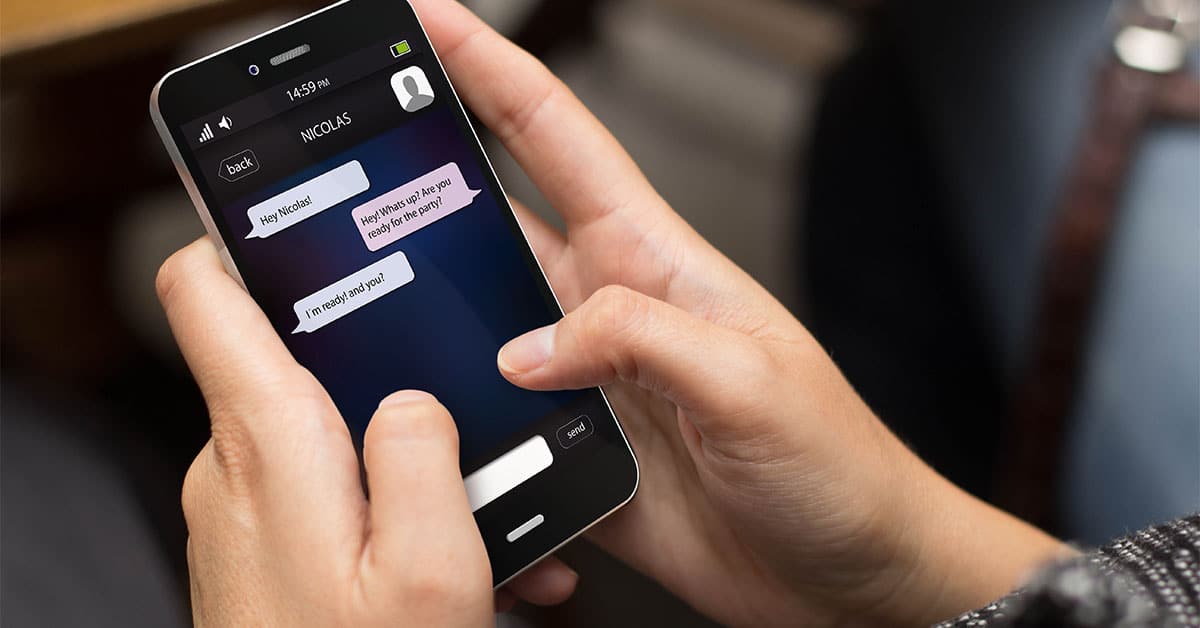Social media has become an essential tool for professional communicators, giving businesses a direct platform to engage with stakeholders and communicate their message to the public. But while businesses have been concentrating on Facebook shares and retweets on twitter, a huge number of people have moved their social activity away from social media and into the realm of ‘dark social’.
Chat-based applications like Facebook Messenger, Snapchat and WhatsApp give users the ability to share the engaging and visually rich content they have become accustomed to in a private format.
This presents challenges to businesses, as this sort of social sharing is much harder to track, giving rise to its ‘dark’ moniker. Businesses can’t ignore the growing popularity of chat-based applications – research has shown that 84% of social shares are currently done through dark social, and that 32% of people would choose to share pages and content solely via a ‘dark social’ application.
Platforms like Messenger and WhatsApp also boast huge numbers of active monthly users, 1.2 billion on Messenger and 1.3 billion on WhatsApp. 55 billion messages are sent via WhatsApp daily, and it would take 10 years to view all the photos shared on Snapchat in the last hour. These numbers show just how popular chat-based applications are.
What’s driving people towards ‘dark social’?
Consumers want instant communication and gratification, young consumers are also moving away from social networks like Facebook, as the demographics of these networks shift to older groups. Platforms like Messenger and Snapchat give them private spaces to share content and connect with their friends, away from the prying eyes of parents.
But how can marketers and communicators harness the benefits, and overcome the challenges, of chat-based social networking?
What’s important for communicators is that they realise that ‘dark social’ is a fundamentally different beast to social media. It’s more immediate and more personal, and these differences drive consumers’ expectations of how they want to be interacted with by brands.
Immediate and personal
The immediate, personal nature of communication on chat-based applications has already seen them used to great affect by brands like Hyatt, which has moved many of their customer services onto Facebook Messenger, and Lufthansa, which created a ‘chatbot’ – an automated chat script which responds to consumers in real time – on messenger which allows customers to search flights, book flights and receive their tickets and reminders through the app.
Because the app lets these brands communicate directly with customers, it gives them the opportunity to have personal conversations about their customer experience and provide personalised information.
Snapchat also presents communicators with an opportunity to produce lively, engaging content and really connect with customers. Maxibon rolled out a highly successful campaign through Snapchat, which used the interactive features of the app to encourage its core target market – young males – to connect with each other and the brand.
Time sensitive and intimate
These are just a few examples of how brands and businesses can leverage these apps to better connect with their customers and take advantage of ‘dark social’. But businesses entering this space need to be aware of the challenges that chat-based communication presents. Users expect rapid communication on chat-based applications, with a study showing 2 out of 3 users expect a response within a day, meaning that those businesses that cannot meet the prohibitive costs of building chatbots will need to monitor their presence on chat-based applications constantly.
Businesses also need to consider the risks of communicating with people on a platform they consider private. As marriage equality campaigners discovered, unsolicited communication through what may be considered a ‘private’ channel (in this case text message) can cause outrage. While platforms like WhatsApp prevent unsolicited marketing, businesses still need to ensure that all communication delivered through ‘private’ channels is executed with sensitivity.
